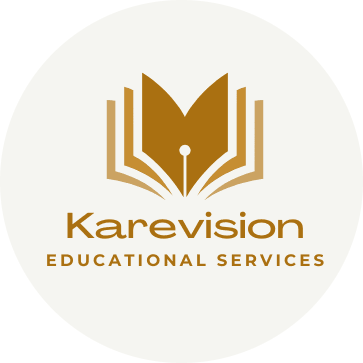The Fundamentals of Grant Writing: A Step-by-Step Guide

Posted on April 2, 2024
In this comprehensive guide, we delve into the essential elements of grant writing, a skill crucial for organizations, businesses, and individuals seeking financial support for their endeavors. Mastering the art of crafting compelling grant proposals is paramount for success in securing funding. Through a step-by-step approach, we aim to equip you with the knowledge and tools necessary to create proposals that captivate funders and align with their objectives.
Understanding the Basics
Before diving into the intricacies of grant writing, it's crucial to understand what grants are and how they work. Grants are non-repayable funds provided by governments, foundations, corporations, or individuals to support specific projects or activities. These funds can cover a wide range of endeavors, from scientific research to community development initiatives.
Identifying Funding Opportunities
The first step in the grant writing process is to identify potential funding sources that align with your project or organization's mission and goals. This can involve researching government grant programs, private foundations, corporate giving initiatives, and other sources of funding within your niche or sector.
Crafting a Compelling Narrative
Successful grant proposals tell a compelling story that resonates with the funder's priorities and interests. Start by clearly defining the problem or need your project addresses, then explain how your proposed solution will make a meaningful impact. Use data, statistics, and real-life examples to support your case and illustrate the importance of your project.
Developing a Strong Proposal Structure
A well-structured grant proposal is easier for funders to read and evaluate. Typically, grant proposals include the following sections:
- Introduction: Provide an overview of your organization and project.
- Statement of Need: Clearly articulate the problem or need your project addresses.
- Objectives: Clearly define the goals and outcomes you hope to achieve.
- Methodology: Describe how you will implement and evaluate your project.
- Budget: Provide a detailed budget that outlines how grant funds will be used.
- Sustainability: Explain how your project will be sustained beyond the grant period.
- Conclusion: Summarize the key points of your proposal and reiterate the importance of funding your project.
Writing Clearly and Concisely
Avoid jargon, technical language, and unnecessary complexity in your grant proposal. Instead, focus on communicating your ideas clearly and concisely, using language that is accessible to a wide audience. Be sure to proofread your proposal carefully to eliminate errors and ensure clarity.
Emphasizing Impact and Outcomes
Funders want to know that their investment will make a difference. Clearly articulate the expected impact and outcomes of your project, including how you will measure success and track progress over time. Use concrete examples and success stories to illustrate the potential impact of your work.
Building Relationships with Funders
Developing relationships with potential funders can significantly increase your chances of securing grant funding. Take the time to research and understand each funder's priorities, preferences, and guidelines. Consider reaching out to funders directly to introduce yourself and your organization, and to learn more about their funding priorities.
Seeking Feedback and Revision
Don't be afraid to seek feedback on your grant proposal from colleagues, mentors, or other trusted advisors. Incorporating constructive feedback can help strengthen your proposal and improve your chances of success. Be open to making revisions and refinements based on feedback received.
Submitting a Strong Application
Pay close attention to the submission guidelines and requirements specified by each funder. Ensure that your proposal meets all criteria and deadlines, and submit your application well in advance to avoid any last-minute complications. Double-check that all required documents and attachments are included with your application.
Following Up and Staying Engaged
After submitting your grant application, don't forget to follow up with the funder as appropriate. This can involve sending a thank-you note for considering your proposal, providing additional information or clarification if requested, or attending meetings or interviews as part of the review process. Staying engaged and responsive demonstrates your commitment and professionalism to potential funders.
Congratulations! You've now learned the fundamentals of grant writing and are well-equipped to start crafting compelling grant proposals for your organization. Remember, successful grant writing takes time, effort, and dedication, but the rewards are well worth it. If you have any questions or need further assistance, don't hesitate to reach out to us at [email protected]. Happy writing!
Send a Message
Our team of experienced professionals is dedicated to helping your organization secure vital funding through meticulously crafted grant proposals. Contact us today to take the first step towards realizing your goals.
